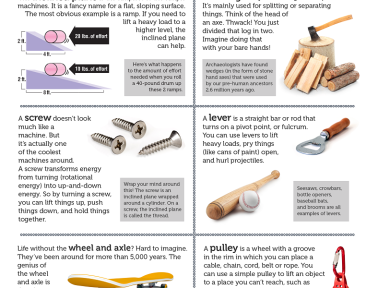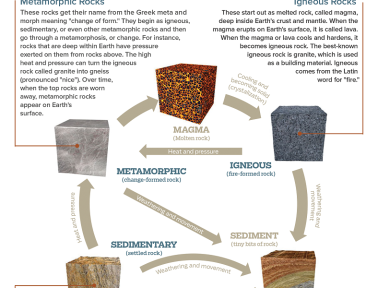The debate over the duties of play as well as academics in preschool is not brand-new. While my very first action to this worn out argument is always that it is a incorrect duality, a more details difficulty has actually recently entered the sector as well as for that reason is worthy of a more specific action.
A study published last month in the American Educational Research Study Journalanalyzed the partnership in between teaching progressed material in kindergarten and academic accomplishment, as well as the connection in between innovative web content as well as social-emotional end results.
Both legitimate points of questions.
Yet the resulting article, Advanced Material Coverage at Preschool: Exist Trade-Offs Between Academic Success and Social-Emotional Skills?has the potential to set a magnifying lens to a little beam, bending and heightening it, adding more fire to the roaring dispute.
While there are difficulties to the research study itself (to be talked about momentarily) the most significant danger is the way this research study can be misconstrued by others. One noteworthy instance, the title as well as opening lines from Chalkbeat claiming ” Kindergarten courses are obtaining extra scholastic. Study states the youngsters are okay.”
Preschool isn’t what it made use of to be– which could not be a negative point.
Recent research study has located that preschool class look increasingly academic, with the casualties usually being art and leisure time for play. That’s anxious lots of parents and youngster advocates.
… Yet a brand-new research study suggests the problems concerning scholastic rigor in very early grades might be overblown.”
While the article takes place to balance those claims with difficulties from Dr. Marcy Guddemi, kid supporter and member of the board of advisers of Safeguarding the Early Years, the effects of the headline and also thesis feed problem for lots of supporters of developmentally proper practicebecause of the chance of it being made use of to disregard or belittle extremely real worries about what is occurring in numerous very early youth class today.
Eventually, educators, parents, and policymakers might all listen to simplistic references to this research presented as evidence to advertise or prop up some educational program, item, or technique that isn’t in the very best interest of our youngest learners.
So let’s break it down.
What did the research really say?
When a scholastic research study strikes the scene, it’s easy to find referrals in splashy headings, but as the old proverb states, the devil remains in the details. I’ll do my best to condense 27 web pages of academic contentright into something brief and also straightforward. It’s still quite hefty, however minimizing it to soundbites risks feeding right into a false story.
Information arise from a large example of kindergarten students (2010-2011 academic year) were checked out as well as organized with each other based on how frequently the students were taught innovative content in areas of mathematics and ELA (English Language Arts) in their class. After that, researchers tried to find relationships between that regularity as well as results in scholastic performance (based on assessments given at the beginning and end of the preschool year) and end results in social skills ( as rated by instructors on a mixed 22-item action).
The research revealed that there was a favorable partnership between teaching advanced academic material in kindergarten as well as amassing greater ratings on academic tests at the end of the preschool year.
Not as well surprising (as well as not especially significant, as researches have actually revealed a fade-out and even a turnaround of this sort of impact).
However the larger jumps are being made based upon a searching for that showed advanced math content was positively associated with higher social-emotional scores (particularly in the locations of attentional emphasis, approaches to finding out, and also social skills), while advanced ELA web content was not significantly associated (positively or negatively) to steps of social skills or habits.
After listing several cautions, the writers ultimately attract the attention-getting final thought that ” we are cautiously confident that advanced academic material can be instructed without compromising pupils’ social-emotional skills.”
Limitations
In laying out the restrictions of their research, the authors themselves explain 3 main problems.
( Hang with me below, we’re taking a brief journey through the land of study approaches. They don’t end up in hot headings, however approving a research study’s conclusion without analyzing its techniques is a dereliction of information.)
ONE: Correlational Research Study
Since this research examined the relationship between existing consider the preschool class (what the educators educated, compared to youngster end results), as opposed to arbitrarily designating the teachers to instruct specific web content or randomly appointing youngsters to specific styles, this study is correlational, not speculative.
It’s vulnerable to self-selection bias because the instructors who reported that they picked to invest even more time mentor “innovative content” might likely have been similar en masse in some other way, and also at the very same time dramatically various from those that did not.
So instructors that provided sophisticated material extra regularly may likewise be more reliable at incorporating principles right into play, even more skilled at creating socially as well as emotionally healthy classroom settings, even more engaging in their distribution, or more responsive to their students’ needs. An existing relationship in between any one of those variables and also a tendency to educate advanced web content would certainly amaze the outcomes. Any type of end result pertaining to “teaching advanced content” could equally be credited to any kind of other co-existing characteristic, such as “incorporating principles into play” and even “putting on the color blue every Thursday”. We simply can not claim causation based on correlation.
2: Action of Direct exposure
The authors conceded that a more specific procedure of exposure would certainly be an enhancement to the study. In order to determine the regularity of including “advanced content”, instructors were asked the number of days per month they attended to those skills and also principles. So two teachers, one that covered the web content for a hr and a half every day, and another that described the content 10 minutes every day, would certainly both be identified in the exact same “daily” regularity team, despite the fact that the actual time accumulated by their students would certainly have been extremely different.
If you think about this frequency in terms of dose in a clinical test, you have individuals that licked the pain killers day-to-day classified in the very same dosage group as those that took 3 aspirin each day.
3: Meaning of Advanced Skills
The authors recognized that they were restricted in how they specified as well as gauged the presence of “sophisticated web content” since they “can not possibly cover the range of abilities taught by preschool educators” as well as admitted that the concepts they determined were “just a slim slice” of the ideas that might perhaps be educated in preschool. This indicates there can be an educator who taught a concept on the presented checklist for a few minutes on a daily basis, who would be counted amongst the advanced web content example and also an additional educator that showed for an hour on a daily basis on a similarly “progressed”– however left out– idea that would be identified as not showing innovative content whatsoever.
Furthermore, the idea of “advanced skills” itself is a slippery term in my point of view. Referencing job by Bassok, Latham, and Rorem, the writers defined progressed web content based upon the percentage of teachers that showed that ability was shown at a higher grade degree. However this subjective interpretation is probably a relocating target, particularly in today climate. That same research (Bassok, Latham, Rorem, 2016) demonstrated that in 1998, only 31% of kindergarten instructors concurred or highly concurred that the majority of children ought to read in kindergarten. By 2010, 80% of kindergarten teachers suggested that they really felt most kids ought to find out to check out in kindergarten. This suggests that in 1998, reading would have been thought about a sophisticated skill for preschool, yet in 2010 it would certainly not. ( Also defining what “should discover to check out” really indicates is a whole various other rabbit opening we can go down.)
Five Answers from DEY
In a rapid reaction, Defending the Very early Years laid out 5 concerns with the research here.
Below’s a quick recap:
ONE.Academic accomplishment was determined by ratings at the end of preschool. That’s a quite reduced bar. Longer-term studies have revealed that scholastic gains at the end of kindergarten tend to discolor gradually. DEY mentions that of the more popular longitudinal and experimental (as opposed to correlational) researches on the subject, the High/Scope Relative Curriculum Research, offers reason to be concerned by these oversimplified results, revealing that one of the most pronounced results arised, not at the end of one academic year, yet concerning twenty years later on.
TWO.Academic achievement was determined by standardized examinations, which (in addition to having their own challenges) are extensively thought about to be undependable as well as inappropriate when used with youngsters listed below third grade.
3. DEY disagrees with the truth that the research study highlights short-term gains over life-long knowing by indicating the fact that researches fall short to show that kids who discover to read at 4 or 5 have any type of long-term advantage for scholastic success or long-lasting reading routines over those that discover to read at 6 or 7. ( Find Out More about DEY’s placement on reading in kindergarten.)
FOUR.The strength of the correlation is weak. According to DEY’s declaration, it’s more probable that there are dumbfounding variables at play than that a cause-effect relationship exists in between advanced math instruction as well as boosted social-emotional skills.
FIVE.Factors Alfie Kohn and Peter Gray mention that several of the actions that would certainly result in reduced social-emotional scores (not putting toys away, for example) are most likely to be displayed in play-based class as well as less likely to be displayed in strictly controlled classrooms, skewing the outcomes. They likewise mention, however, that settings without chance for these social-emotional challenges (which may supply high scores for social-emotional abilities by default) likewise do not have chances for social-emotional discovering as well as growth.
The Threat
The reason these misunderstood headlines make youth advocates anxious isn’t that they think youngsters shouldn’t be tested or that they aren’t efficient in finding out sophisticated concepts. It’s the unfortunate and prideful nature of declarations like “worries about academic roughness in early qualities may be overblown” particularly when paired with the admission that this “rigor” is typically supplied in a set with decreased play.
The oversimplified discussion of researches like this can too quickly be made use of to bolster programs, methods, and products that are ultimately damaging to overall advancement.When unease emerges, advocates can simply make sweeping claims that the “advanced material” is sustained by science.
This fixation on “advanced content” can lead some parents and teachers to cave to the fallacy that teaching xyz by any means essential cause optimal outcomes.
Yet as one more research study examining advanced material in very early childhood clarifies, the link is not so simplistically attracted in between the subject covered as well as the finding out end result. In discussing the advantages of integrating innovative mathematics ideas, Engel, Claessens, Watts, and also Farkas composed:
This does not suggest that time spent on including and subtracting will automatically progress kids’s understanding of maths. For instance, it is feasible that having students simply remember addition as well as reduction facts may do much less to progress student understanding of foundational mathematical principals than having them hang around on counting activities that require cognitively difficult engagement with ideas related to number and also amount.”
While this most recent research concentrated on what content can be shown in kindergarten, it’s clear that training content and helping children to fully understand ideas can be 2 completely different tasks.Focusing on even standard skills in a thorough way will advertise a lot more discovering than will giving a superficial nod to “innovative abilities”.
Additionally, making a reckless jump into advanced abilities may well leave our most prone learners in the dirt. “You require number sense? That’s too bad. We know you’ll benefit from innovative material, so we’re starting with subtraction.”It appears absurd, yet, regrettably, this is exactly what takes place when educational programs end up being as well scripted and also rigidly bound by checkboxes. We wind up requiring educators to show the educational program as opposed to the kid.
Kids come to preschool with a wide spectrum of fundamental expertise. And we want to get them all to those “advanced” abilities at some point. Yet we have to begin where they are to develop that sturdy foundation.If we suddenly create a residence of “sophisticated content” on soft dirt without a foundation, points might look great for a while. Maybe even all the way through that examination at the end of the year. However eventually, that dirt will wear down, your house will change under the strain of one more degree, and also the structure will eventually drop. Till we obtain that foundation right, it will not matter how sophisticated our design for the structure is.
So right here’s what we need to extract from the study.
Setting aside every one of these restrictions and difficulties, and also the risk of performance problems in early education and learning, is not a little point. However if we can do that for simply a minute, I really concur with a couple of things in this research.
The writers assert they are “very carefully optimistic that innovative scholastic material can be educated without jeopardizing pupils’ social-emotional skills.”
Here’s where I agree. Educating innovative skills will certainly not instantly lead to broken children.
But “CANISTER” is the important word there. We absolutely can teach innovative academic material in very early childhood settings while still supporting healthy and balanced social-emotional advancement. With the same self-confidence, I would claim that we canteach innovative academic material in very early youth setups and entirely compromise pupils’ social-emotional growth.
Why and also Just how
As I have actually educated over as well as over in workshops across the USA, WHAT we teach is just as crucial as WHY and HOW. WHAT seems to get all of the attention. WHAT will be instructed in the program? WHAT gets on the lesson plan for tomorrow? WHAT will these youngsters find out?
There is no scarcity of ideas (advanced or otherwise) that can be educated in any type of early childhood setup. But if we truly want to get to the heart of the matter, let’s ask ourselves WHY. WHY this concept? WHY this task? WHY this goal? WHY advanced web content?
Knowing our WHY will educate our HOW.
Are we looking for a performance!.?.!? Do we want to inspect a box? Are we attempting to produce incrementally higher ratings on questionably legitimate standardized examinations, to be filed into a kid’s school document 9 months after it’s created?
If our WHY comes under any one of these categories, drilling must work. Shaming could be effective. Anxiety as well as stress and anxiety may even sustain such temporary accomplishments.
But what if our WHY is various? Are we thoroughly and deliberately building a strong foundation!.?. !? Are we concentrated on the whole kid? Are we satisfying kids where they are as well as replying to what they need?
If our WHY is found right here, our HOW will include nurturing relationships, inspiring curiosity, as well as scaffolding play as well as inquiry.
In truth, all of us understand (or should know now) that learning and also whole child advancement are not up in arms with one another. That when we understand our WHY and it leads us to the best HOW, we can take care of understanding (also “progressed” learning) in settings that are lively, child-centered, developmentally ideal, and also socially as well as emotionally helpful.
In fact, that’s where the BEST discovering occurs.
But everything depend upon HOW. Right before issuing the mindful assertion that advanced content can be educated in preschool, the writers shared a caveat that gets much less interest.
We do not understand exactly how advanced content was actually instructed. It is possible, for instance, that progressed web content might have been supplied via directed play or various other facets of play not captured by the present study.”
That’s an essential detail.I certainly do not know exactly how the content was educated in this study either. Nobody does, as the HOW wasn’t taken a look at here in any way.
( Though, if we intend to discuss social and behavioral end results as well as the HOW, we do know from Walter Gilliam’s job that the lowest prices of preschool expulsion were discovered in programs with the most affordable regularity of worksheets and also flashcards as well as the greatest frequency of dramatic play. Taking a much more longitudinal point of view, we also recognize that at age 23 those in the direct guideline group of the High/Scope studywere greater than twice as most likely to have a felony arrest than those in the play-based teams.)
I do not think momentarily that our children will benefit socially and also emotionally from sophisticated web content in spite of inadequate teaching methods. But I do concur with the writers that advanced content CANISTER be shown in lively, responsive, developmentally proper means, consequently additionally sustaining healthy and balanced social and also psychological growth as they assert.
I’ve seen it over and also over once again.
In one of my preferred monitorings, I saw a preschool instructor take a seat with a team of 4 youngsters for snack time. She informed them they would certainly be having biscuits and that each kid can have 3. She after that asked how many she should place on home plate. “Three!” They excitedly exclaimed. She obliged, setting 3 crackers on the plate. The youngsters checked out the table and made use of some “advanced math” to discern that this would certainly not be adequate. So the teacher allow the children duke it out the conundrum up until they at some point concurred that twelve biscuits should be enough for the 4 youngsters to have three each.
In this setup, with context and significance, these youngsters dealt with the foundational ideas of multiplication.
Pretty progressed.
I’ve seen kids on a regular basis explore “advanced mathematics ideas” as we analyzed the contents of the Number Bag brought by a schoolmate, as they would certainly recommend making an even larger number by combining the three numbers presented on our graph (analysis 3 digit numbers) or discover that they can make three sets of three out of 9 items (structures of department as well as multiplication).
” Advanced content” is all around the play-based class. Educators are introducing innovative vocabulary like “symmetry” while doing fold art. Youngsters are experimenting with innovative physics as well as geometry concepts like incline in the block area. The course is engaged in advanced writing as they create a shared story after an expedition to the greenhouse, where they discovered innovative scientific research ideas. Buddies are browsing via advanced, high-powered arrangements as they appoint functions in the significant backyard.
Proficient, intentional instructors who have actually found out to recognize, highlight, and also optimizewill prepare, prepare, as well as respond to instructing moments embedded and intertwined right into developmentally appropriate, socially scaffolded, play-based settings. Advanced content locates its means into these classrooms where well-trained instructors are supported as well as allowed to respond to the individual children before them.
And that responsiveness is crucial.
A one-size-fits-all strategy to very early childhood years curricula is antithetical to the responsive nature of developmentally appropriate practice. Our youngsters need instructors that have the ability to react to students, not just educate web content.
To me, this study isn’t a covering endorsement for advanced content, but yet one more pointer of just how youngsters can take advantage of educators who are well educated and well sustained, to make sure that they can acknowledge opportunities for mentor web content– both fundamental and also advanced– in responsive, engaging, as well as developmentally proper methods.
Our children won’t magically benefit from being exposed to the “tiny piece” of items on the sophisticated material checklist in this research study, yet they will always gain from scaffolding as well as functioning within the zone of proximal advancement with receptive, willful instructors that are enabled to show the kids where they are, rather than blindly starting where they desire them to be.
They’ll thrive with educators that can identify, highlight, as well as take full advantage of discovering outcomes in meaningful, developmentally appropriate means.
That includes play. It isn’t up in arms with it.
So if any person attempts to offer you on the elimination of play by pointing to this study, you can let them understand that isn’t what it claims at all.
Passionate about advertising and carrying out developmentally appropriate practice? Bring Amanda to your college or meeting. Learn more: Roughness in Early Education And Learning.” Ido not assume it suggests what you assume it means.
” h3>
. NJC The Risk of Performance Hang Ups in Early Childhood
A Story of 2 Studies: What We Know About Children as well as What We Do p>
NJC Collection: Developmentally Appropriate Practice and Why We Do Not Press Kids Down the Stairways
NJC The Value of a Solid Structure: Why Early Knowing Matters NJC










